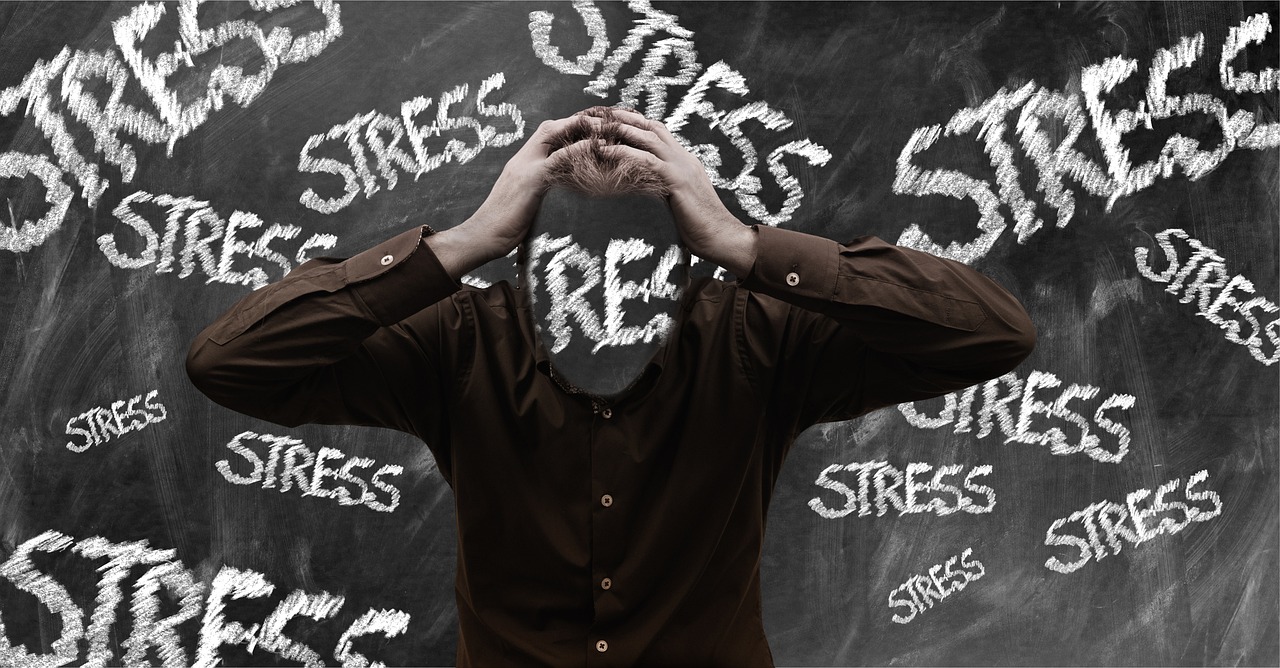“Manage Stress”
Stress is a natural response that affects everyone at some point in their lives. While it can sometimes act as a motivator or help you deal with immediate challenges, prolonged or chronic stress can take a toll on both your mental and physical health. Understanding how stress works and how to manage it effectively is crucial for maintaining overall well-being.
In this article, we’ll dive deep into the science of stress, explore its effects on the body and mind, and provide actionable strategies to manage stress for better health.
1. What is Stress? The Body’s Fight-or-Flight Response
Stress is your body’s way of responding to threats or demands, whether real or perceived. It’s a biological reaction that involves both physical and mental processes. When you encounter a stressful situation, your brain triggers the release of hormones such as cortisol and adrenaline. These hormones prepare your body for the “fight-or-flight” response, enabling you to react quickly to the stressor.
- Short-Term Stress: This type of stress can be beneficial in certain situations. For instance, stress can help you stay focused during an important presentation or help you respond swiftly to danger. Once the stressful event is over, the body’s systems return to normal.
- Chronic Stress: When stress becomes long-term and constant, it turns into chronic stress, which can have damaging effects on the body and mind. Chronic stress occurs when you are constantly exposed to situations that make you feel overwhelmed or out of control, leading to persistent tension and anxiety.
Action Tip: Recognize your body’s signs of stress, such as increased heart rate, sweating, or muscle tension. Awareness of these signals can help you intervene before stress becomes overwhelming.
2. The Science Behind Stress: How Stress Affects the Body
When stress hormones like cortisol and adrenaline are released, they trigger various physiological changes. These include an increase in heart rate, heightened muscle readiness, and a rush of energy, all of which are essential for survival in dangerous situations.
However, when stress persists, it can negatively impact multiple bodily systems:
- Cardiovascular System: Chronic stress can lead to high blood pressure, heart disease, and an increased risk of stroke. The constant strain on the heart and blood vessels can eventually lead to long-term damage.
- Immune System: Prolonged stress weakens the immune system, making you more susceptible to infections, illnesses, and chronic conditions. Cortisol suppresses the immune response, making it harder for your body to fight off viruses and bacteria.
- Digestive System: Stress can disrupt digestion, leading to conditions like irritable bowel syndrome (IBS), acid reflux, or ulcers. Stress can also suppress appetite or, conversely, trigger overeating, leading to weight gain.
- Mental Health: Chronic stress is a major contributing factor to anxiety, depression, and other mental health disorders. It can also affect memory, concentration, and decision-making abilities.
Action Tip: Monitor your stress levels regularly, and if you notice consistent physical symptoms like headaches, fatigue, or digestive issues, consider seeking professional support or using stress-reduction techniques.
3. The Emotional and Cognitive Impact of Stress
Stress not only affects your body but also has a significant impact on your emotions and cognitive function. When stress becomes overwhelming, it can lead to:
- Emotional Effects: Stress can cause irritability, mood swings, frustration, and feelings of helplessness. Over time, chronic stress may contribute to the development of emotional conditions such as anxiety and depression.
- Cognitive Effects: Stress impairs cognitive functions such as memory, focus, and problem-solving abilities. This is because the brain prioritizes survival during stressful times, diverting resources away from non-essential functions like logical thinking and planning.
Action Tip: Practice mindfulness or meditation to help regulate emotional responses to stress and improve focus and clarity during challenging times.
4. Types of Stress: Acute, Episodic, and Chronic Stress
Not all stress is the same, and understanding the different types can help you identify what you’re experiencing and how to manage it.
- Acute Stress: This is short-term stress that occurs in response to immediate threats or challenges, such as a job interview or an argument. Acute stress is typically resolved quickly, and the body returns to a normal state once the situation is over.
- Episodic Acute Stress: Some people experience frequent episodes of acute stress, often due to a high-pressure lifestyle or constant worry. This can lead to long-term health issues if not managed properly.
- Chronic Stress: This type of stress occurs when you are exposed to ongoing challenges, such as financial strain, work stress, or difficult relationships. Chronic stress can take a serious toll on your physical and mental health, leading to burnout or emotional exhaustion.
Action Tip: Identify the type of stress you are experiencing and adjust your coping strategies accordingly. Acute stress might require immediate relaxation techniques, while chronic stress may require lifestyle changes or long-term therapeutic interventions.
5. Stress Management Techniques: How to Cope and Reduce Stress
There are many strategies for managing stress, and the key is to find what works best for you. Here are some scientifically backed techniques to help you cope with and reduce stress:
1. Physical Exercise:
Regular physical activity is one of the most effective ways to reduce stress. Exercise releases endorphins, the body’s natural mood boosters, which can help relieve tension and anxiety.
- How to Practice: Incorporate at least 30 minutes of exercise into your daily routine, whether it’s walking, running, yoga, or strength training.
2. Mindfulness Meditation:
Mindfulness helps you focus on the present moment and reduce the impact of stressors on your mental state. Practicing mindfulness can help you become more aware of your stress triggers and how to manage them.
- How to Practice: Set aside 10–15 minutes daily for mindfulness meditation, where you focus on your breath and let go of distracting thoughts.
3. Time Management:
Poor time management can be a significant source of stress. Learning to prioritize tasks, delegate responsibilities, and set realistic goals can reduce the pressure of deadlines and unfinished tasks.
- How to Practice: Use a planner or digital tool to schedule your tasks, set priorities, and ensure you have enough downtime for relaxation.
4. Deep Breathing Exercises:
Deep breathing activates the parasympathetic nervous system, which helps counter the body’s stress response. It can lower your heart rate and blood pressure, promoting a sense of calm.
- How to Practice: Take slow, deep breaths through your nose, hold for a few seconds, and exhale slowly through your mouth. Repeat this process several times whenever you feel stressed.
5. Social Support:
Spending time with friends, family, or support groups can help buffer against stress. Talking about your feelings with someone you trust can reduce stress and help you gain perspective on the situation.
- How to Practice: Schedule regular social interactions, even if it’s just a phone call with a friend. These connections can significantly reduce stress levels.
6. Hobbies and Creative Outlets:
Engaging in activities you enjoy, such as painting, reading, or gardening, can provide a healthy escape from stress. Creative activities, in particular, offer a therapeutic way to express emotions and reduce anxiety.
- How to Practice: Dedicate time each week to pursue hobbies or creative outlets. This provides a mental break and fosters relaxation.
6. Seeking Professional Help: When Stress Becomes Unmanageable
While stress management techniques can help alleviate mild to moderate stress, chronic or severe stress may require professional intervention. A mental health professional, such as a therapist or counselor, can provide tailored strategies and support for managing stress.
- When to Seek Help: If stress is interfering with your daily life, relationships, or mental health, it may be time to seek help from a professional. Therapy options such as cognitive-behavioral therapy (CBT) can help you develop coping strategies and reframe negative thought patterns that contribute to stress.
Conclusion: Mastering Stress for Better Health
Understanding the science of stress and its impact on your body and mind is the first step toward managing it effectively. By recognizing the symptoms and effects of stress, you can take proactive steps to reduce its impact on your health. Incorporating stress management techniques like mindfulness, physical exercise, and social support into your routine can significantly improve your mental well-being and overall quality of life. Remember, managing stress is an ongoing process, but with the right tools and mindset, you can build resilience and maintain better health for the long term.
Let your imagination run free, Immerse yourself in a world of colors and beauty. Remember, your mental well-being is priceless.
Team coloringbookvibe.com

Coloring Book Vibe is a dedicated publisher of captivating coloring books, along with instructional books on drawing and coloring techniques. We are deeply passionate about the art of coloring, ensuring our designs are always intricate, beautiful, unique, and often infused with a touch of humor. We highly value our customers and always welcome feedback and suggestions. Our collection features an incredible array of coloring books across various genres, including Fantasy, Animals, Mandalas, Doodle Patterns, Floral, Landscapes, Country Scenes, and more.



